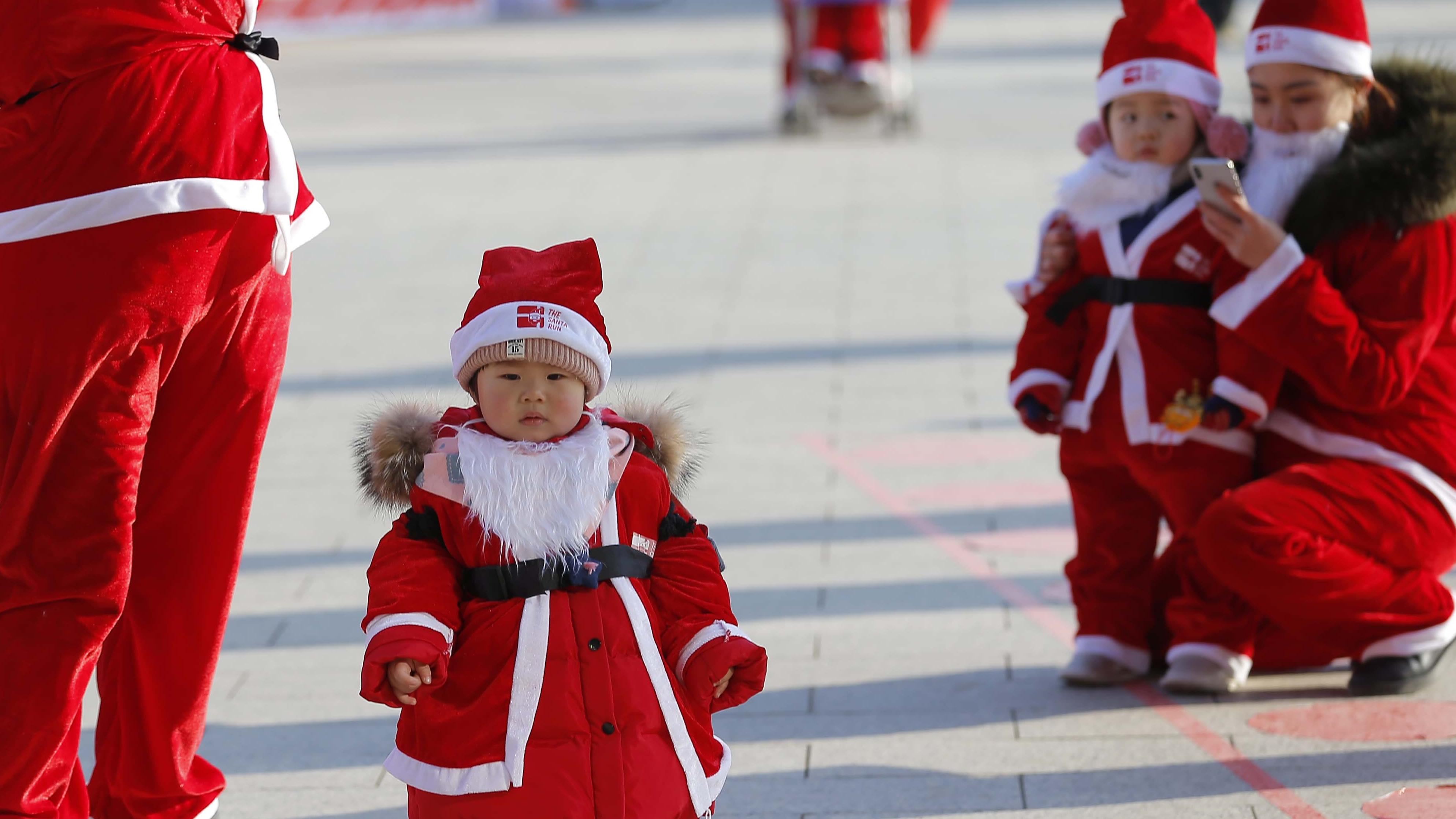
Factum Perspective: Peace on Earth, the message of Christmas?
By Vinod Moonesinghe

With the expansion of proselytising Christian empires in the centuries before the second millennium, Christianity became a world religion. As Kenya’s Jomo Kenyatta said,
When the missionaries arrived, the Africans had the land and the missionaries had the Bible. They taught us how to pray with our eyes closed. When we opened them, they had the land and we had the Bible.
The occupying USA managed to Christianise formerly Buddhist South Korea in two decades. In colonies which did not convert, the imperialists established small, privileged Christian minorities. With Christianity spread the celebration of Christmas.
The evangelist Luke reported (Luke 2:13-14) that on Jesus’s birth the angels sang “on Earth peace, good will toward men.” So, from the very beginning, a message of peace accompanied Christmas. In the 13th century, Swedish nobleman Birger Jarl ordered an annual “Christmas Peace”, a tradition which continues to this day in Finland. At Christmas 1914, the first of the First World War, soldiers from different sides gathered together in spontaneous, unofficial truce, to celebrate in No Man’s Land, singing carols and playing football.
Christmas with Chinese characteristics
Christianity reached China in the first millennium, but grew rapidly only after the First Opium War began the “Century of Humiliation”. Christmas accompanied European missionaries into the interior. Since then, anti-Christian campaigns have emerged, most powerfully the Movement of the Righteous and Harmonium Fists (the “Boxers”). However, a Christian, Sun Yatsen, led the revolutionary movement of 1911 against the Qing dynasty, and the Communist Party of China (CPC) tolerated Christianity, looking favourably on Christmas.
On Christmas Eve 1946, two drunken US Marines raped Shen Chong, a young Beijing University student. The authorities colluded with the US military in covering up the crime and acquitting the rapists. Thereafter the CPC attitude to Christmas changed, depending on whether “imperialists” or “non-imperialists” staged the festival.
Nevertheless, the CPC treated Christmas as a season of peace, unity and solidarity. After the liberation of China in 1949, on his 70th birthday, the CPC media likened Soviet leader Josef Stalin to Santa Claus. During the Korean War, Chinese soldiers prepared Christmas festivities for British and US prisoners of war. The Cultural Revolution caused the official attitude to Christmas to harden, but to soften again with the post-1978 reforms. There have been outbreaks of anti-Christmas feeling, but never with official sanction.
Today, about 4% of Chinese are Christians, but Christmas is celebrated by a wider population, as in Japan – where it has also dissociated itself from its Christian roots – more as Valentine’s Day for children and young adults. Even President Xi Jinping visited “Santa Claus” in Finland.
The main festivities are on Christmas Eve, and centre on street decorations, dining and gift giving – especially of apples, since the “píng” in “píngguǒ” (apple) sounds a little like the “Píng” (for “peace”) in “Píng’ān Yè” (“Peaceful Evening” – i.e., Christmas Eve).
Christmas in Bethlehem
The Bible (Matthew 2:1) says “… Jesus was born in Bethlehem of Judaea…” So, for Christians, the town in the Israeli-occupied Palestinian Left Bank, Christmas means something special. Indeed, for all Palestinians (only 2% of whom are Christian), Jesus’s nativity is a source of pride. On Christmas Eve 2019, a Palestinian leader called Christmas “The birthday of our lord Jesus the Messiah, the first Palestinian and the first Shahid [witness or martyr].”
At Christmas, the inhabitants of Bethlehem decorate their streets with lights and, on Christmas Eve, parade through their city centre, past the large Christmas tree fronting the Church of the Nativity, where thousands of Palestinian and foreign Christians congregate for mass.
Each year, around Advent, little craft distilleries across the occupied Palestinian territories prepare special batches of Arak (forbidden to Muslims) for Christmas. For years, Muslim women belonging to the Zaina Co-operative Association in the Gaza Strip have been handcrafting Christmas gifts for sale in Gaza and Bethlehem, as well as for export. Only 1,000 of Gaza’s 2 million people are Christian. “Our prophet encouraged us to respect all religions and we like to join with them in celebrating their day,” Zaina’s product designer Laila Tayeh told Reuters in 2019.
However, the peaceful celebrations in Bethlehem are marred by the Israeli occupation authorities. Israelis have built 22 illegal settlements in the vicinity (out of 240 in the West Bank), while the illegal “Apartheid Wall” and some 30 roadblocks obstruct access for residents severely. This year, as every year, the Israeli authorities blockading the Gaza strip, have denied arbitrarily about a third of applicants the right to leave to join their relatives for Christmas.
Secularisation
As in China, Japan and Palestine, Christmas is becoming increasingly secular worldwide. The traditions of Christmas have shed many Christian trappings, sometimes blending with local customs or mutating, and sometimes reverting to the customs of the original European pagan festival. This is apparent in countries such as India and Sri Lanka, where commercialisation has left the festival’s religious and social functions far behind: the decorations could make an alien wonder if the tropical Christmas celebrates the Arctic tundra.
Even in the metropolitan Christian homelands, Jesus Christ and his apostles have been trumped by Santa Claus and his reindeer. The institution of Santa Claus (originally St Nicholas, a Greek immigrant in markedly reindeer-free Anatolia) draws heavily from Indo-European traditions of gift-giving and mythological beings such as Wōðanaz (Óðin).
Britain is now a minority Christian country but continues to celebrate Christmas. Apart from traditional gift giving, Christmas carols, Christmas Dinner (lunch), and drinking, it is a time for buying Christmas songs, getting together, and watching Christmas films on TV – mostly feelgood movies, such as “Love, Actually”, but also ones with socially-responsible content, such as “Last Christmas”. Indeed, giving to charity and volunteering (as in the last-mentioned film) are part of the package. So, the message of peace lives.
War and peace?
However, Christmas has a dark side as well. Secular France celebrates a secular Christmas. Government buildings may be decorated, but no Christian symbols may be displayed. Ultra-Right politicians are now challenging that secularism by openly displaying nativity scenes in local authorities controlled by them.
In Britain, popular Christmas movies include war films. Perhaps this is not so strange. In 1940, Nazi dictator Hitler ordered a Blitz of the main British cities over Christmas, causing thousands of civilian casualties. And he launched his bloody Ardennes offensive over the 1944 Christmas season.
However, Hitler did not stand alone in preferring Christmas for warfare. The US firebombing of Korean cities, begun in November 1950, paused only on Christmas day. In 1972, the US forces illegally occupying South Vietnam began an extended bombing campaign against North Vietnam, codenamed “Linebacker 2” but better known as the “Christmas Bombing”. In 1998, the US conducted a bombing campaign in Iraq just before Christmas. Conversely, the USSR picked the Christmas season for its intervention in Afghanistan.
So Christmas, like its Manichaean philosophy, has good and bad aspects in terms of world peace. Good, in that the celebrations bring together people over the world in a festival of love, friendship and peace. Bad, in that it is a time in which oppression and warfare continue unabated. The message of the 1914 Christmas Truce remains unlearnt.
Vinod Moonesinghe read mechanical engineering at the University of Westminster, and worked in Sri Lanka in the tea machinery and motor spares industries, as well as the railways. He later turned to journalism and writing history. He served as chair of the Board of Governors of the Ceylon German Technical Training Institute.
Factum is an Asia Pacific-focused think tank on International Relations, Tech Cooperation and Strategic Communications accessible via www.factum.lk.
The views expressed here are the author’s own and do not necessarily reflect the organization’s.
